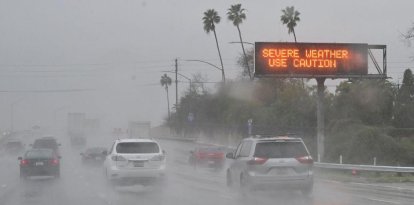Florida beaches on alert due to invasion of seaweed containing flesh-eating bacteria
Researchers at Florida Atlantic University believe that the perfect conditions are in place for the spread of Vibrio vulnificus.

(
Florida Atlantic University (FAU) is warning people about Florida beaches that are possibly contaminated with the bacterium Vibrio vulnificus, known as the flesh-eating bacteria. According to researchers, the large amounts of seaweed that recently invaded Florida beaches could contain this dangerous bacteria.
Vibrio is one of the most common bacteria found in ocean water and is behind several marine illnesses and deaths. As the FAU explains, "It can cause life-threatening foodborne illness from seafood consumption, as well as disease and death from open wound infections." According to FAU, samples taken from sargassum seaweed on Florida beaches contained high amounts of Vibrio bacteria.
Vibrio bacteria can cause serious intestinal problems. It adheres to the walls of the gastric system and releases toxins that cause diarrhea and other serious infections. Antibiotics can resolve minor infections, but in advanced stages, the bacteria can lead to amputations.
Perfect pathological storm
The seaweed that carries this bacteria is commonly found in the Sargasso Sea, located east of the Gulf of Mexico. The sea was even named after the seaweed. According to researchers, the problem stems from the plastic debris along the Atlantic Ocean. Bacteria such as Vibrio tend to stick to this type of debris.
At the same time, the presence of sargassum seafood is increasing due to the large amount of contaminated plastic. When a fish or other marine animal ingests pieces of contaminated plastic, the bacteria cause effects similar to those suffered by humans. It then expels residual nutrients such as nitrogen and phosphate which in turn feed and stimulate the growth of sargassum algae in the surrounding area. The FAU summarizes calls the process "The perfect pathogenic storm affecting both marine life and public health."
Researchers believe that the things that sargassum seaweed is used for could be endangered by the presence of the bacterium. "We really want to make the public aware of these associated risks. In particular, caution should be exercised regarding the harvest and processing of Sargassum biomass until the risks are explored more thoroughly," said Tracy Mincer, assistant professor of biology at FAU's Harbor Branch Oceanographic Institute.

























